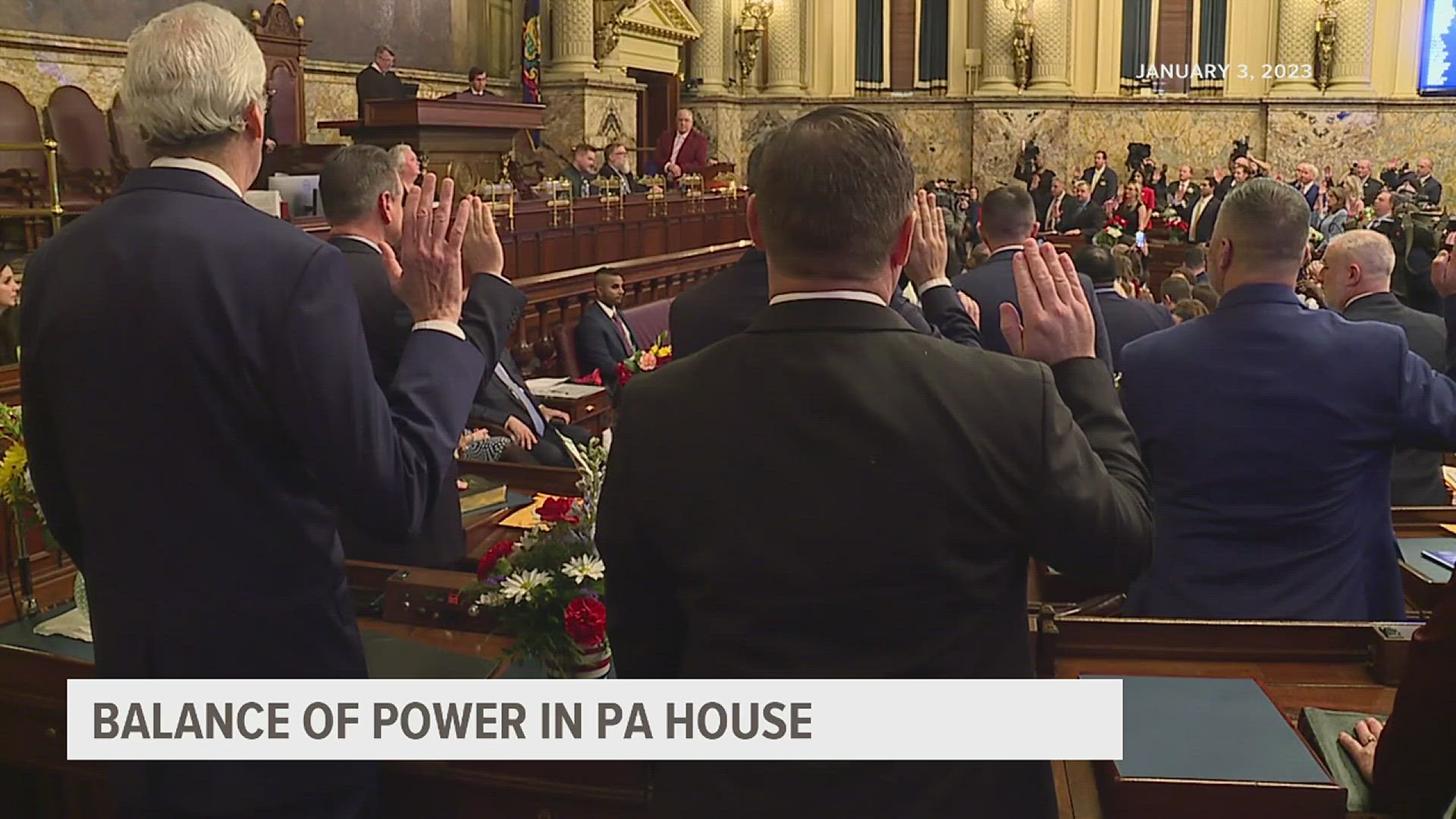PENNSYLVANIA, USA — A Pennsylvania state lawmaker submitted his resignation letter Wednesday, a week after a union lobbyist accused him by name of having sexually harassed her four years ago.
Democratic Rep. Mike Zabel of Delaware County said in the letter to Democratic Speaker Joanna McClinton that his resignation will take effect March 16, leaving enough time for her to order that the vacancy be filled during the May primary.
“The toll is just too great on my family, and was too detrimental to my well-being. I need to focus on what matters,” Zabel said in a brief phone interview with The Associated Press on Wednesday, shortly before sending the resignation letter. McClinton's spokesperson said her office would soon issue a statement.
“Allegations of this nature are impossible to litigate in a public forum,” he wrote in a subsequent text. “It was always my intention to go through the Ethics Committee process and defend myself there. At this point, though, I am unwilling to put my loved ones through any more of this.”
His decision to step down was a reversal from Friday, when he told Democratic House leaders that he was stepping down from the Judiciary Committee but not resigning and had plans to enter inpatient treatment of some kind.
During the phone interview, he declined to elaborate on his treatment plans or to speak on the record about the allegations against him.
Andi Perez, a lobbyist with the Service Employees International Union, went public with her allegations during a hearing in January but did not name him. In a statement last week, however, she accused him by name of caressing her leg while they were discussing legislation outside the Capitol and said he did not stop when she moved away from him.
Rep. Abby Major, a second-term Republican from Armstrong County, said during a news conference Wednesday for International Women's Day that she was approached by Zabel at a “local establishment” in Harrisburg in mid-November. She did not know him well, she said.
“He was clearly intoxicated, his lips and teeth were stained red from wine,” Major said. He complimented her appearance and put an arm around her, touching her back, Major said.
“He then asked me if I wanted to get out of here and go upstairs," Major said. She recalled telling a colleague Zabel had propositioned her and “was being a creep." As a male colleague walked her to her car, she said, she was “stunned” to see Zabel behind them.
Major said other women have told her similar stories about Zabel, some who do not want to speak publicly.
“I felt disgusted and sick about their stories, especially in conjunction with mine,” Major said. “It's showing a clear pattern.”
Zabel said in the letter to Democratic leaders last week that he was “very mindful of and saddened by the sensitive and disturbing allegations against me.”
“My illness has caused some behavior that I regret, and I agree that additional intervention is necessary for me to fully recover,” Zabel wrote last week. “I am in the process of securing additional intensive treatment, beyond the outpatient treatment I have been receiving, and am currently working with my health care providers and my family to identify an appropriate inpatient program which I will be entering as soon as possible.”
There is currently one vacancy in the closely divided state House, where Democrats flipped control of the chamber in November after 12 years in the minority. A special election for the vacancy, a heavily Republican district in central Pennsylvania, was scheduled by McClinton on Tuesday for the May 16 primary.
Perez's union, the SEIU Pennsylvania State Council, has said he should resign, as have House Republican leaders and a number of state representatives of both parties. Democratic leaders had not urged him to resign, but said last week they agreed "that it is appropriate for him to take a step back from his work and focus on the challenges before him.”
Zabel, a lawyer first elected in 2018, is married. He voted last week for a package of 2023-24 session chamber rules that, among other things, greatly expanded who can file complaints about lawmakers through the House Ethics Committee.
The Associated Press generally does not identify people who say they have been sexually assaulted or subjected to extreme abuse. Decisions on whether to identify those who say they have been subjected to other forms of sexual misconduct are made on a case-by-case basis, and Perez has spoken in public about it.
The AP found that since 2017, at least 120 state lawmakers in 41 states have faced public allegations of sexual misconduct or harassment. Most of the allegations have been made after the #MeToo movement sparked a public reckoning for people in power accused of sexual wrongdoing.

